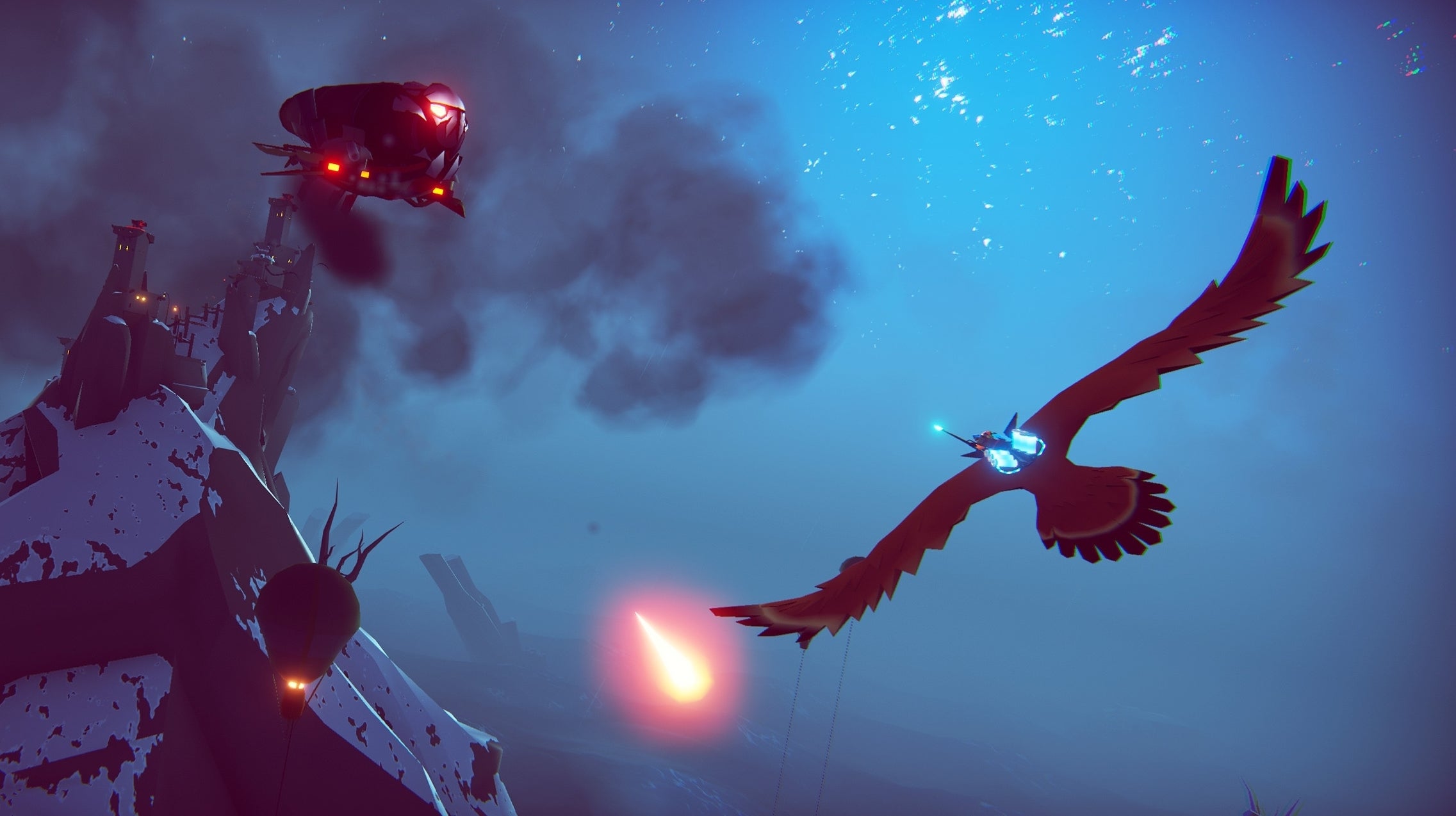I’ve been eager to get back to The Falconeer since I first played it in the early days of lockdown. All through the last 180-odd days, while I’ve been risking a walk to Tescos, Skyping family and staring out the window, I’ve found myself thinking of The Falconeer’s one-man whirlwind Tomas Sala, who has presumably been spending his days bringing an uncommonly rich fantasy game to life.
Now I have a new build, and I look at the boiling ocean riding perilously high against the game’s rocky landmasses, the citadels and shanties of this strange and luxuriously imagined world, and it’s almost too much. Campaigns, customs, several entire cultures are scattered into the pot here, all of them bringing a real sense of consequence to this aerial dog-fighter, a real suggestion that everything in here is so deeply felt it’s almost tangible, it’s almost ready to exist without the game.
I’ll admit it’s almost short-circuited me. It’s like discovering an entire civilisation has been ticking along in the living room carpet all these years – so many rituals and tragedies and epochs. So I’ve become a bit blinkered. I’ve focused in on the thing I can get my head around, the beautiful living spark at the heart of this remarkable game.
In the Falconeer you ride around on a bird. Fine. But to type that is not to understand it. And to understand it you need at least an hour of the game behind you. In the Falconeer you are not the bird, but you are in control of it. The game makes all of this luminously clear by the way the pad inputs translate into what happens on the screen and the way the bird’s abilities interlock with the world.
